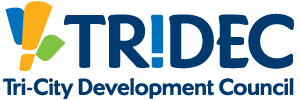WSU Tri-Cities
Amazing things are accomplished when community partners and Washington State University Tri-Cities come together, turning our collective vision toward student-centered education and the greater needs of the region.
WSU Tri-Cities is driven by a commitment to dynamic student engagement, research experience and community engagement. An entrepreneurial spirit and innovative approach allow our urban campus to leverage opportunities and to provide the type of student experiences usually found at private colleges.
Our team of faculty and staff are serious about the promise to provide a world-class education as part of a Tier 1 research, land-grant university. Students at WSU Tri-Cities have face-to-face interaction with faculty and support from staff. Class sizes are small, typically 35 students are taught by a Ph.D., which also means it’s easy to be involved in student government, clubs, internships, and student learning projects.
Academic programs in arts and sciences, business, education, engineering, nursing, and viticulture and enology are supported by a vibrant Career Development Center. Prospective freshman and transfer students coming from out-of-state should ask our admissions team about the Western Undergraduate Exchange.
Since becoming a four-year institution in 2007, our urban campus has grown in many ways. The fall 2013 headcount of 1,336 is only part of the story — students of color make up 30.5 percent of enrollment, and veteran students are 8 percent. WSU Tri-Cities is proud to be the most culturally diverse campus within the WSU system and to be a state-designated Veteran Supportive Campus.
Partnerships are key to WSU Tri-Cities, from research collaborations with the Pacific Northwest National Laboratory to the Bridges transfer students program with Columbia Basin College. Industry partners invested in our engineering programs, allowing for the addition of academic degrees, faculty, student laboratory equipment, and scholarships. WSU alumni and alumni-owned business team with our campus for the Cougs In The Community service-learning initiative. Generous donors provide more than $400,000 annually for scholarships. Creative collaborations are changing the landscape, literally, on our Richland campus.
Washington State Gov. Jay Inslee led the groundbreaking ceremony on Sept. 26, 2013, for the Wine Science Center at WSU Tri-Cities. Through a development authority managed by the city of Richland, wine producers, grape growers and the Port of Benton, this public/private effort is building the most technologically advanced wine research and education center in the world. The $23.5 million project is on track for completion in early 2015. Through the leadership of Thomas Henick-Kling, director of the WSU Viticulture and Enology program, the research and training conducted in the Wine Science Center is an important factor in the exponential growth of the wine industry.
College of Nursing students at WSU Tri-Cites now have a state-of-the-art education facility in which to prepare for their careers in health care, thanks to support from Prosser Memorial Hospital Foundation, Trios Health (formerly Kennewick General Hospital), Lourdes Health Network, Lampson International, Group Health Cooperative, Kadlec Regional Medical Center, and other donors. The nursing building opened in January 2014.
U.S. Sen. Maria Cantwell came to the Bioproducts, Sciences, and Engineering Laboratory in September 2013 to announce the creation of the Federal Aviation Administration’s Center of Excellence for Alternative Jet Fuel and Environment. The Center is a consortium of 16 universities, co-led by WSU with MIT and PNNL, and involving biofuels researchers at WSU Pullman and WSU Tri-Cities. The faculty research team based in the Bioproducts, Sciences, and Engineering Laboratory—led by Dr. Birgitte Ahring—specializes in discovering and developing environmentally friendly processes that can be commercialized, such as making liquid fuel out of regionally available biomass like woody materials and agricultural residue.
The Tri-City community and its advocacy for higher education drives our success at Washington State University Tri-Cities. We look forward to even more dynamic partnerships and opportunities that benefit students and the region’s economy.
Learn about the most diverse campus in the WSU system at www.tricity.wsu.edu or contact the Office of the Chancellor at chancellor@tricity.wsu.edu or (509) 372-7258.


